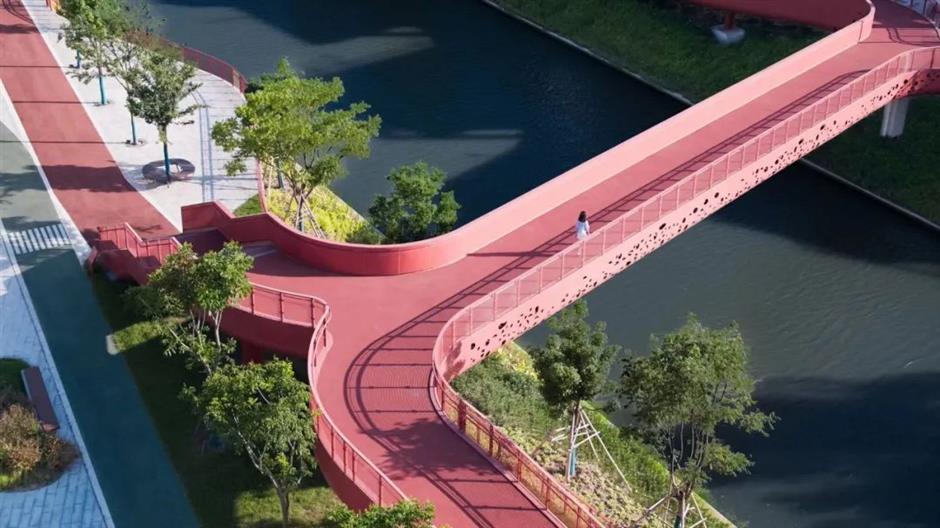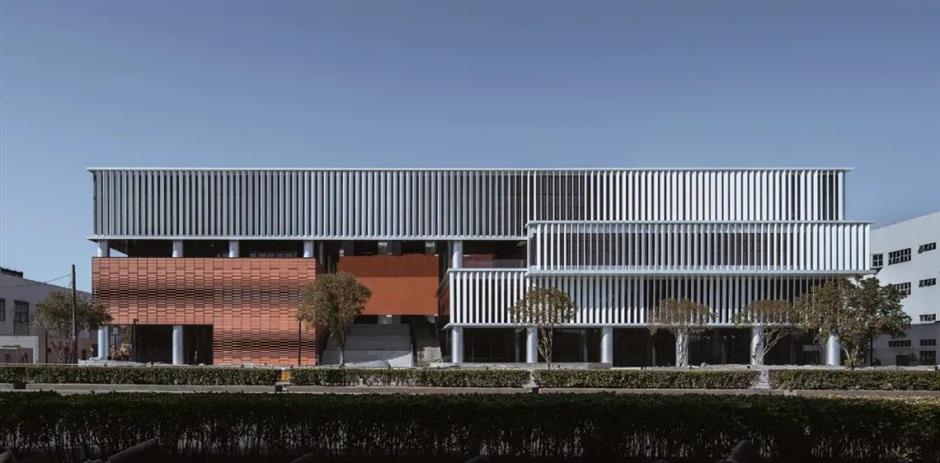
The riverside areas along the Hengjinggang River of the Greater Neo Bay scientific innovation zone in Shanghai's Minhang District.
Shanghai plans to develop a "Greater Bay" high-tech zone in Minhang District to drive the city's ambition to become a scientific innovation center with global influence, Vice Mayor Liu Duo said on Monday.
The Greater Neo Bay will cover about 17 square kilometers in its core area including Shanghai Jiao Tong University and East China Normal University in Minhang, according to its blueprint released on Monday.
"By the end of 2023, the zone will gather over 600 high-tech companies, including 70 firms with estimated values of over 100 million yuan (US$14.36 million) each, along with top professionals to become a key engine to drive regional economic and social development," Liu told a press briefing.
The zone is being developed based on the Neo Bay project, initiated in 2015 near Jiao Tong University. It has been expanded after attracting more than 3,000 high-tech firms as well as innovation and service centers in the last eight years.
The expanded greater bay will mainly focus on the biomedicine, artificial intelligence, high-end equipment and new sectors, such as the digital economy, low carbon and metaverse.

A new pedestrian bridge over the Hengjinggang River.
It will feature a Core area around the two universities, a Transform area on Cangyuan and Jianchuan roads to incubate innovative projects from teachers and students of the universities, as well as an Opening area in the Zizhu and Jiangchuan waterfront to accommodate mature high-tech companies.
The bay will be basically completed in 2025 with some 1,000 high-tech firms and over 100 billion yuan in collective regional industrial value.
Its scientific innovation strength will be further enhanced by 2035 to become the "origin and highland" of Shanghai's scientific innovation sectors, according to the blueprint.

A key office building in the Greater Neo Bay zone.
The city government released 22 supportive measures to drive the development of the bay, which will become an "open scientific innovation block" attracting global professionals.
More than 60 startup firms set up by teachers and students of Jiao Tong University are now based in the bay, with a total estimated value of 50 billion yuan, according to Ding Kuiling, president of the university.
"The city is the backbone of the university, while the university is the engine of urban and industrial development," Ding noted, adding that the birth of the bay is "inevitable" with the development of the city and the university.

